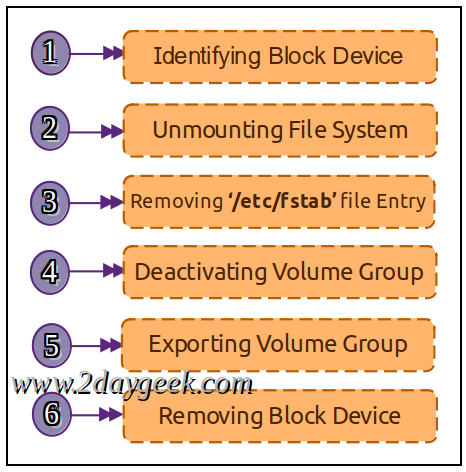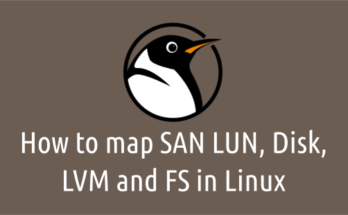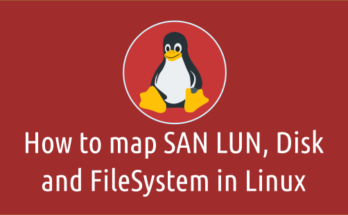There are situations where a storage device or LUN must be removed from running system without any issue.
This happens for a variety of reasons, but most commonly, when the storage team migrates to new storage.
In this scenario, the storage LUN has been configured as a logical volume disk (LVM) on the system.
In this tutorial, we will show you how to remove a storage device (LUN) from a Linux system with six simple steps.
Make a note: As a best practice, I would recommend backing up data from the device before removing it from the system. This is necessary if you want to restore the data to an earlier state.

Step-1: Identifying Device
Identify the device ‘/dev/sd[X]’ to be removed from the system using smartctl command. Assume that we are going to remove the named disk ‘sdf’, which is currently holding the ‘data’ mount point.
smartctl -a /dev/sdf |grep -i 'unit'
Step-2: Unmounting File System
First, you need to unmount the file system that you would like to release.
umount /data
Step-3: Removing /etc/fstab entry
Remove the mount point’s entry from the /etc/fstab file, otherwise it blocks the system on next reboot.
Step-4: Deactivating Volume Group
The vgchange command activates or deactivates one or more volume groups. We need to deactivate the respective volume group in order to removes it from the kernel table.
vgchange -an vg01
Step-5: Exporting Volume Group
Export the volume group. This prevents it from being accessed on the current host system and prepares it to be removed. Also, it flush any outstanding IO’s of the device.
vgexport vg01
Step-6: Removing Device from Linux Server
Finally, delete the block device, which is mapped against the storage LUN.
echo 1 > /sys/block/sdf/device/delete
Conclusion
In this tutorial, we’ve shown you how to remove a SAN disk or Storage Device (LUN) from Linux with six easy steps. This same procedure works in Red Hat (RHEL) and their clones.
If you have any questions or feedback, feel free to comment below.




Nice tips